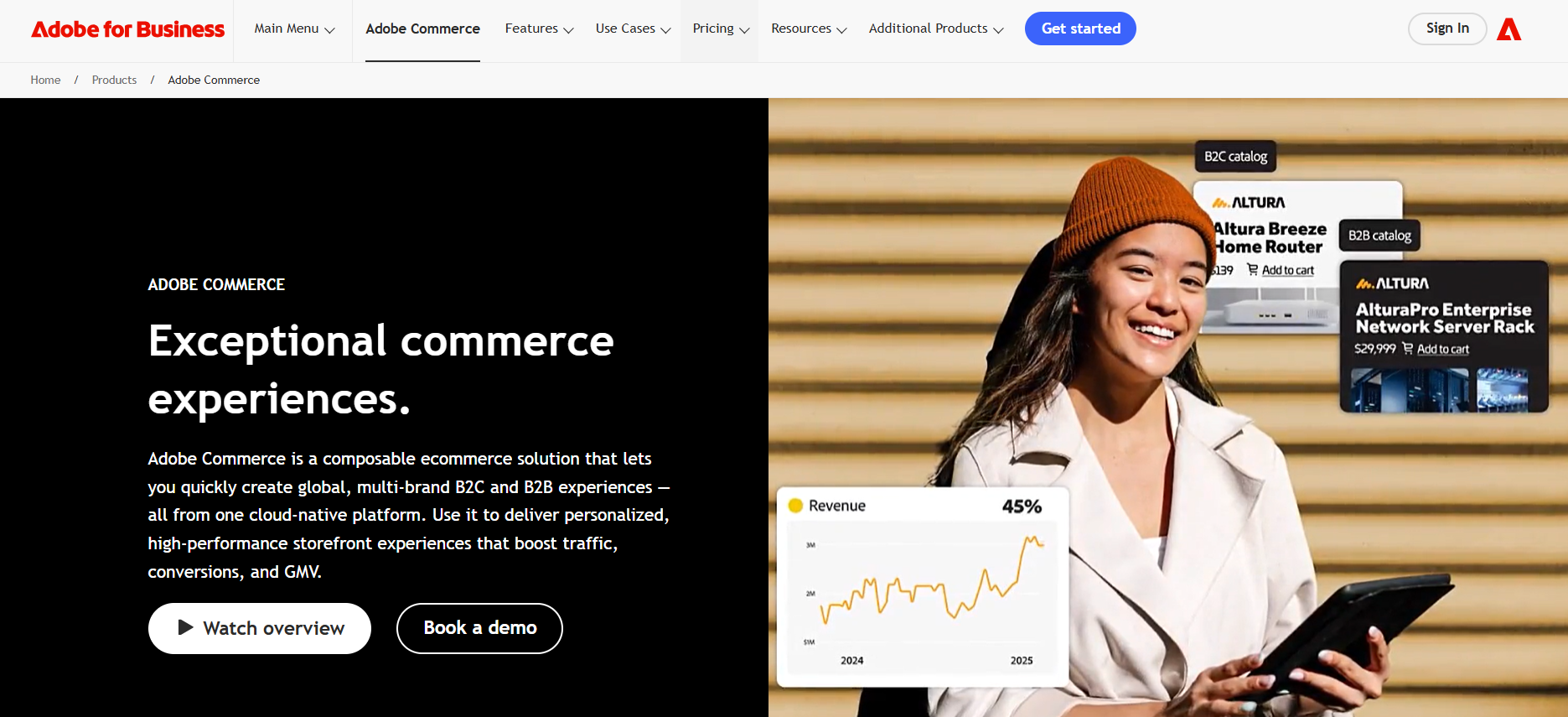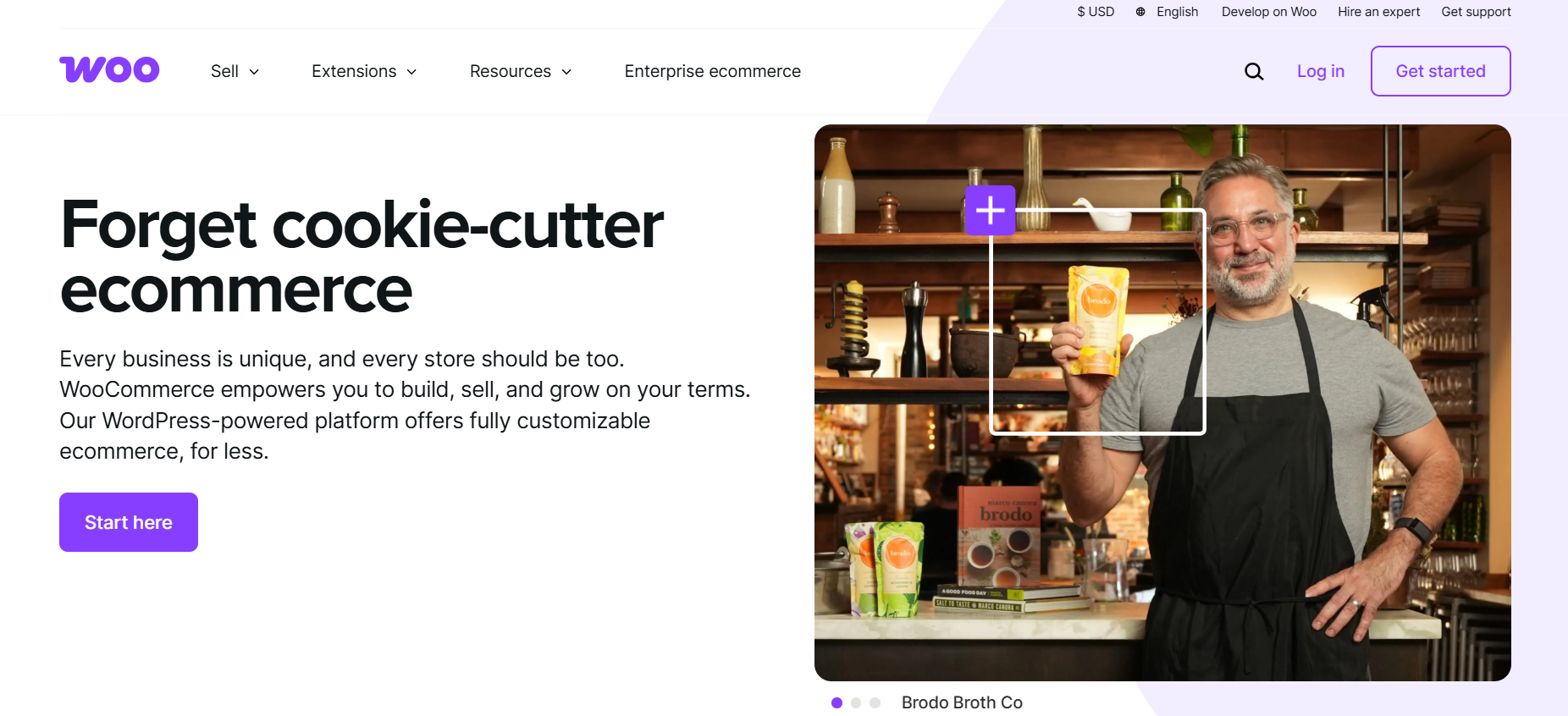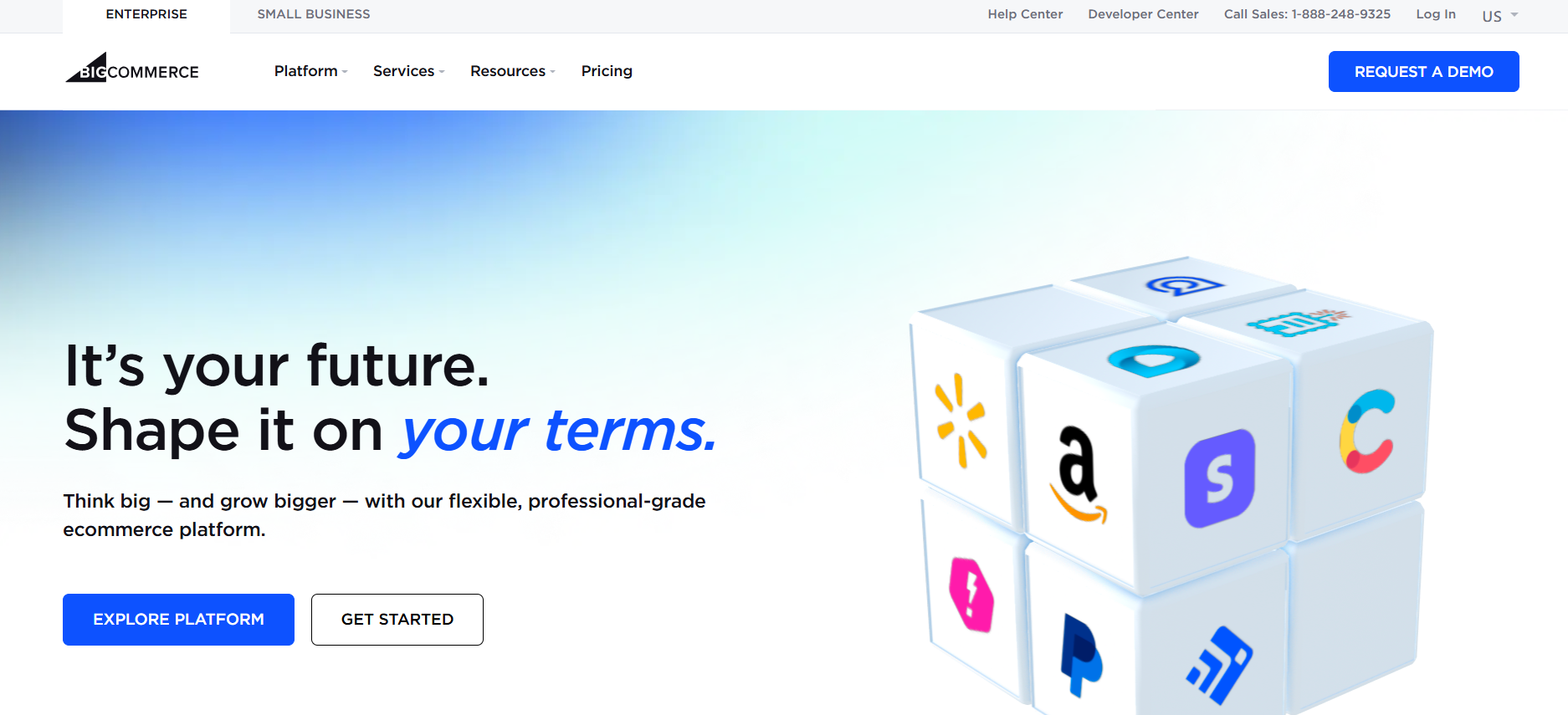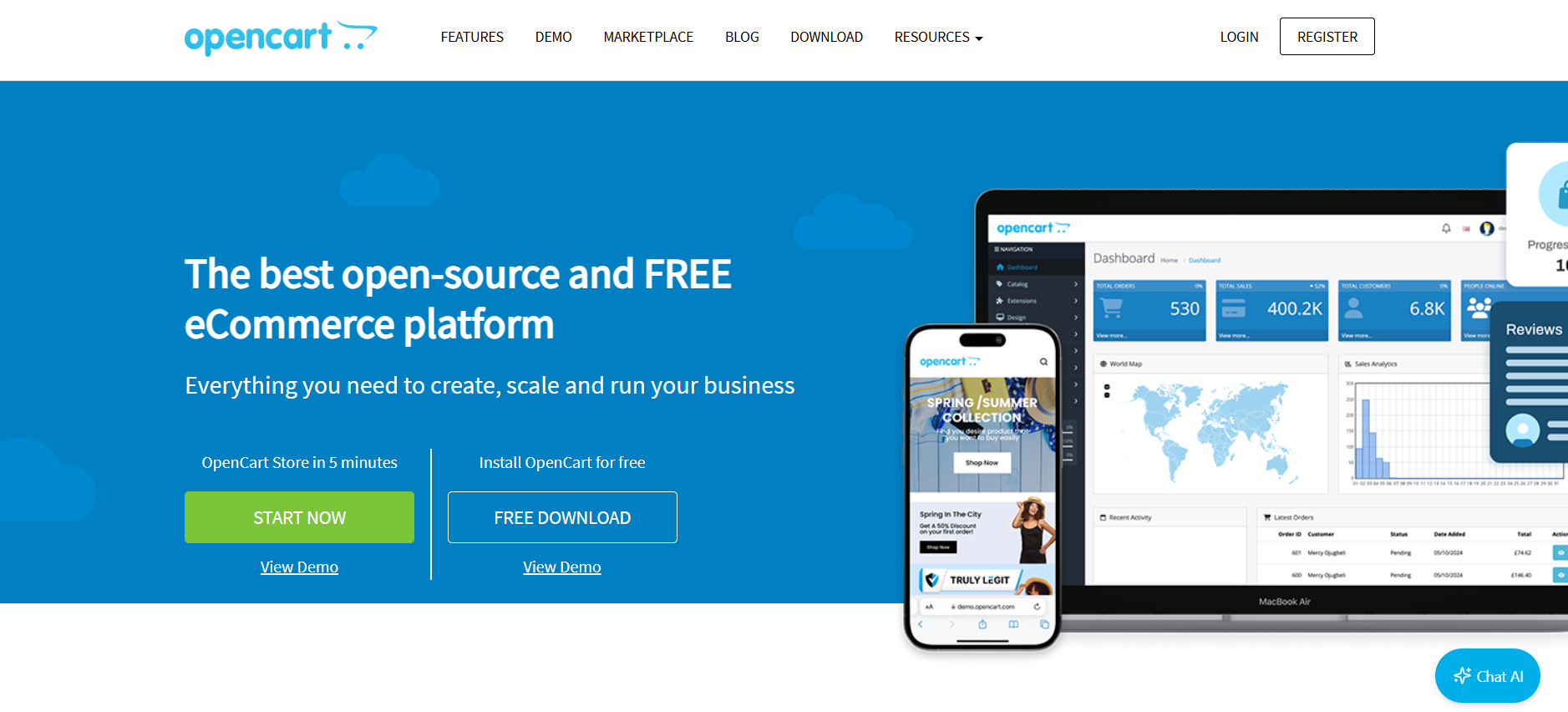During recent years, right after the Covid, we have seen growth in the e-commerce market. From small to large businesses whether it’s a B2C or B2B businesses many have shifted mode of business to online.
According to a recent report, around 2.77 billion online shoppers are expected by 2025. This is a huge opportunity for businesses to switch to e-commerce. This will help businesses to increase sales and build online reputation and brand.
But, choosing the right e-commerce platform is important because the right tools and features will help a great shopping experience for your customers and help smoothly run your business operations.
In this blog we will explore the top five e-commerce platforms suitable for both startups and enterprises including the features, advantages, and drawbacks that will help you to decide which platform will be suitable for your business.
Before moving into the top five e-commerce platforms let’s quickly check out why you need to have a robust e-commerce platform.
5 Importance of Robust E-commerce Platforms
E-commerce platforms are built to support businesses of all sizes from startups to large enterprises. Here are a few reasons why you need a robust eCommerce platform:
A platform must have product management features including payment processing. Having inbuilt marketing features helps with SEO. A platform must have scalable features. Must have strong online security measures. Must have quick adaption of market changes such as trends and technology.
Top 5 E-commerce Platforms Suitable for Both Startups and Enterprises
1. Shopify

Shopify is undoubtedly the best choice for many business owners. It has covered 25% of the global e-commerce brands since its launch in 2006.
Shopify offers a user-friendly interface, easily customizable templates, inventory management, SEO, and more, including third-party app integration.
Key Features:
Its drag-and-drop interface makes it easy to set up. 100s of customizable templates are available for quick setup. Shopify supports multiple payment gateways. Built-in SEO features and marketing tools like email campaigns and social media integration. 1000+ third-party apps are available to enhance functionality.
Pros:
User-friendly interface. Easy access to customer support. Multiple online resources and community. Highly scalable. High end security.
Cons:
Monthly subscription fees can be high for advanced plans. Transaction fees unless using Shopify Payments. Limited customization options compared to open-source platforms.
Pricing: Starts at $9 per month.
2. Magento (Adobe Commerce)

Magento is a powerful open-source e-commerce platform. It is best known for its flexibility and scalability.
Magento has advanced features for catalog management, SEO, and other marketing campaigns. It is mostly suitable for large businesses with requirements.
Key Features
Highly customizable It has extensive product catalogs Basic to advanced SEO feature options Strong security features and regular updates. It supports B2B functionalities
Pros:
Rich in customization Highlyscalability esp. for large projects.
Cons:
Requires technical expertise to set up and manage. Higher cost due to development and hosting. Can be resource-intensive, requiring substantial server resources.
Pricing: Not available. On-request available.
3. WooCommerce

If you are looking for a free option and easy to handle platform then WooCommerce is your answer.
WooCommerce is another popular e-commerce platform, it is an open-source e-commerce plugin for WordPress.
It is a plug-and-play WordPress plugin that is easy to set up and customize. It also supports additional plugins to enhance your e-commerce functionality.
Key Features
Easy to add to your WordPress website. Multiple themes and plugins available for customization It is open source which makes it free to use with optional paid extensions Easy to implement SEO changes It has large community and developer support.
Pros:
Free to start and run Multiple third-party plugins are available to enhance WooCommerce Easy to customize Easy do SEO for each product page, custom page, etc
Cons:
Required experts to integrate more advanced features Requires regular monitoring and update Performace can differ due to a number of plugins used and hosting plan
Pricing: Free to start
4. BigCommerce

BigCommerce is a cloud-based e-commerce designed to help scalable e-commerce marketplace. Its features include high-end product management, SEO tools, and multi-channel selling.
Key Features
Does not require additional transaction fees Built-in SEO and marketing tools You can easily integrate with marketplaces like Amazon and eBay With PCI compliance it provides high security It can handle large product catalogs and website traffic
Pros:
Provides robust built-in features without the need for other third-party apps Performance and scalability No transaction fees is required
Cons:
Customization can be more challenging compared to other platforms Higher base cost than some competitors Limited themes compared to other platforms like Shopify
Pricing: Available on request
5. OpenCart

OpenCart is another open-source e-commerce platform with a user-friendly interface and rich in features that help you manage your online store.
OpenCart can be helpful for advanced customization for your business using extensions apps and themes.
Key Features
It is free to use with open-source code Using a single dashboard you can manage multiple storefronts Multiple extension apps are available to enhance the online store Advanced user and permission management available It supports multiple languages and currencies
Pros:
Free to start with no subscription fees Flexible and customizable with 100s of extensions Supports multiple stores and international selling
Cons:
Requires technical expertise for setup and maintenance Limited support options compared to hosted solutions Managing can be less user-friendly for beginners
Pricing: Start with Free with 7 days trail
How to Choose the Right Platform?
Choosing the right e-commerce platform can be tricky and you can easily end up with something that you don’t need. To be honest every e-commerce platform has its own pros and cons.
The selection of the right platform depends on many factors, these are:
Business Size Technical Expertise Specific Requirements Business Scalability Investing in Tech Team Marketing capability Business type – B2B, B2C, etc.
How to Get Starter With Your Project?
Define Your Needs Research each Platforms Use free demo or trial Look for expert advice. Plan for lunch – keep products SKUs, etc Go Live
If you are a business owner then its time to join the online race of the e-commerce market. Speed up the process of implementation by consultation with top e-commerce development companies.
Start Browsing today!

.png)